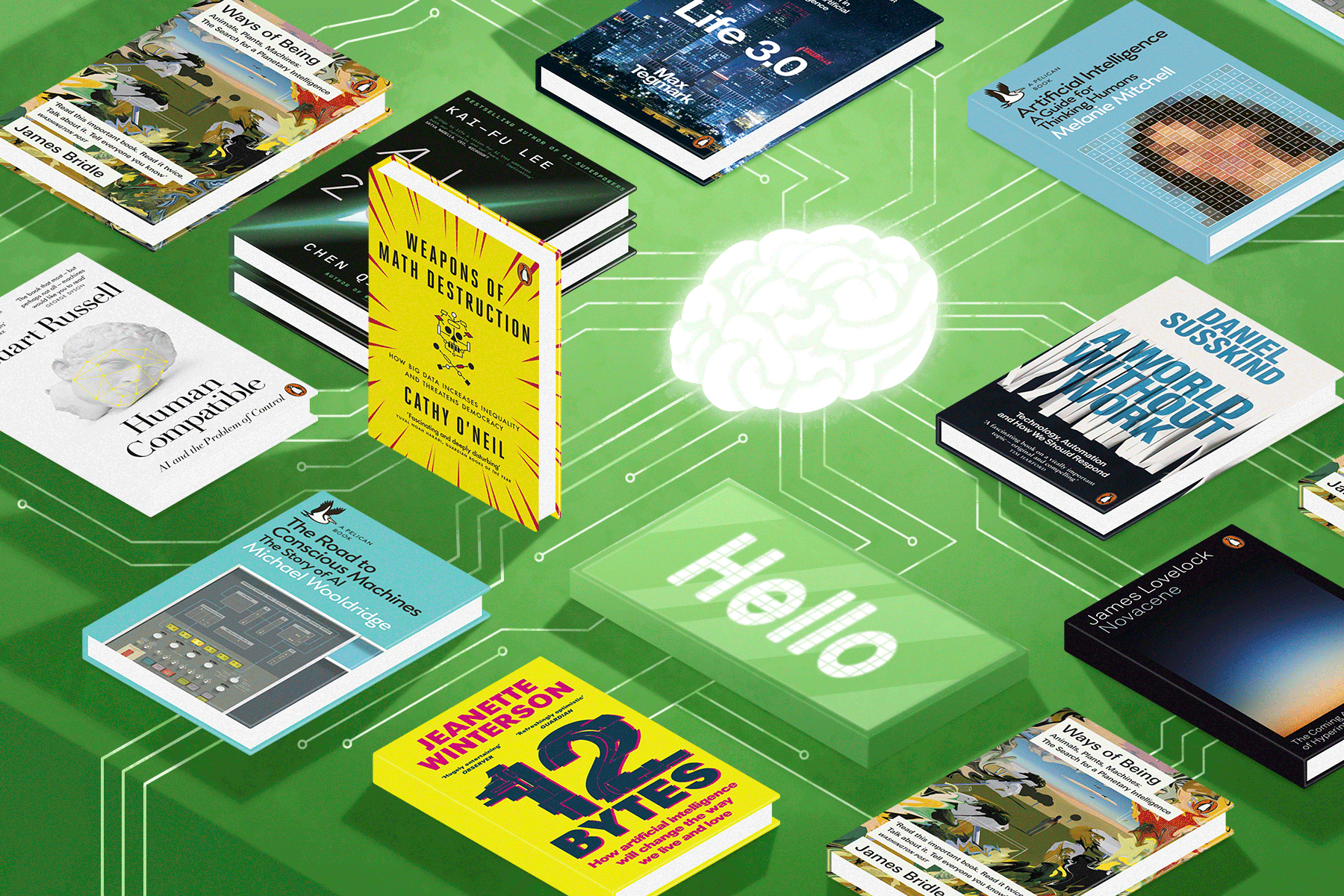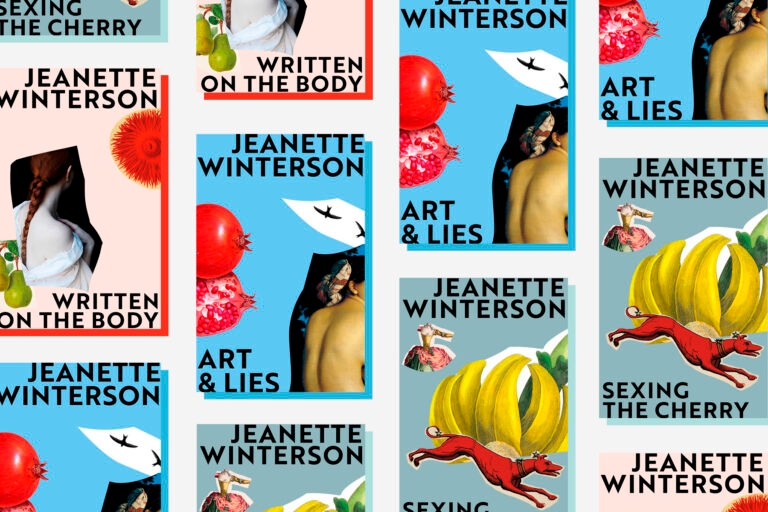In this bonus episode from The Penguin Podcast, Episode 11 - Winter Reads, Jeanette Winterson shares her fascinating perspective on our relationship with Artificial Intelligence (AI) and the evolution of human consciousness.
Click the button below to listen or continue scrolling to explore all of the books mentioned in this episode.
Related reading
Bonus episode 3: transcript
Rhianna Dhillon:
Rhianna Dhillon:
Hi, I am Rhianna Dhillon, and welcome to another bonus episode of The Penguin Podcast. A little while ago, I was joined in our gorgeous book filled studio in the heart of the penguin offices by the brilliant author Jeanette Winterson. Jeanette popped in to discuss perfect winter reads and told me all about her latest work, Nightside of the River. It was an incredible conversation with the writer whose career spans 40 years, but there were some amazing bits that we just didn't have time for in that episode. So we thought we'd bring you a little bit more now. Jeanette's new book is a collection of ghost stories, and there are many elements of the modern and technological world discussed amongst the supernatural from apps and avatars to A.I. So with that in mind, I asked Jeanette how she thinks our relationship with artificial intelligence will look in the near future.
Jeanette Winterson:
Well, there's two ways, aren't there? There are people who are saying, look, this A.I., all A.I., let me be clear at present, all A.I. is a tool, and humans are tool using animals. That's what it is. It's all in the same line from the industrial revolution that we make something, you know, if we're too punny, we make a machine that can do the strength work for us or if we're too slow, we get something that'll take us faster in an aeroplane. We've always been really good at managing our limitations with our devious devilish cleverness. With A.I., it could end up being something very different because anything that you can talk to, you start to form a relationship with, you can't help it. Anybody who had a teddy bear knows this, it doesn't need to be alive. Some people talk to the goldfish. I mean, they are alive, but they're not sentient in the way that you think might matter. The point is, the moment what looks like a conversation begins, you start to get attached because that's how humans are wired. So it doesn't matter how many scientists say, there's no point talking to your chat GTP, the version that will pretend that it's your friend because it's not your friend, because you will talk to it and every version beyond.
And if A.I. does develop some kind of sentience, some kind of consciousness, then what do we do? I don't know what we do. I think it will profoundly affect us as humans, and that we will start not just relating to it, but falling in love deeply with these other things that seem to care about us. And I'm not even sure whether it matters if they do care about us or not, because so much of human experience is based on illusion. How many times do you believe somebody loved you and found out very quickly that they didn't, or very slowly that they didn't or that somebody cared about you and didn't and doesn't? So this whole business of it won't care about you. You sure? Who does care about you and in what way? And so we are going to have to reassess everything, and we may become the ghosts in the machine, not the A.I., because we are the ones who are still going to die.
And of course, in the metaverse, if it becomes anything other than a kind of clunky theme part for monetizing our every desire in the metaverse, the idea will be you could have an avatar. And that avatar unlike you, is not time bound. So if you are in there with your best friend, your girlfriend, your boyfriend, whoever, and they die, you can keep the avatar going. The avatar doesn't need to die. Just as you can get messages on your phone as you know already, just as you can alter your photographs so that the dead person is in them. That's very popular in China. We're already saying, I don't like this death business, so let's not have it. So these are real things that are really going to happen. And if the metaverse does become a viable alternative where people do spend a portion of their lives, then there is no need to do it with people who are only biologically alive. And quite a lot of the things, people you meet in there will not be alive anyway. They'll be programs. So you're really in the matrix. Is this a program? Is this an avatar? Is this somebody I could meet in what I call the real world in Toy Town? Or is it somebody who has never existed in the way that I exist? This is real stuff and it's going to happen.
Rhianna Dhillon:
There is one of your characters who sort of shapes her dead husband into the husband who she wishes he would be. And even that, but even that doesn't work out happily ever.
Jeanette Winterson:
No, because he was lousy in life and he's lousy and death. So he runs off with another avatar who wants to build the golf course. And of course, our heroine decides that she'd rather fall in love with this program. Who really cares about her?
Rhianna Dhillon:
Yeah, the Cuban. I mean, he sounds dreamy.
Jeanette Winterson:
I know. But you see, this is what will happen. Of course, it starts with you think, oh, he is some sad sack has nothing to live for in the real world. And yet in the metaverse, they have something which is seductive and powerful, and it's like so many ghost stories, fairy stories where you're kinda of drugged into this other place, which is beautiful when your own life is ugly. We know those stories and it seems delusional. It all goes wrong. But what if it doesn't go wrong? What if it goes right? And so we've been talking about hard boundaries, death, but all sorts of boundaries, all sorts of things that we thought were settled are not going to be settled.
Rhianna Dhillon:
Well, with that in mind, what do you hope will happen to your digital footprint after you die? Do you have an idea of what you want that to look like?
Jeanette Winterson:
Do you know? I think I'm a bit too old to benefit from what's going to happen because I think interesting things will happen. So there won't be time for me to be uploaded. I don't think. I'm not going to be cryogenically frozen. There's no point. That's like the cassette tape of death technology. Forget it. By the time you can upload parts of your consciousness, you will not need to have your miserable body that's been stored in a vacuum flask somewhere in Arizona, well below freezing temperatures. It was a good idea, but it's going to be obsolete really fast because if we can upload consciousness, the whole point is that when you are not a biological entity, you can download into any shape or form you want, which is supposedly what spirits can do anyway. They appear to us as the dead person that we know if we knew them, because that's the only way we can recognise them. But in theory, once you're out of the body, you can do what you like and you're not bound in time and you're not bound by the laws of physics. So if we ever get to upload ourselves, then we can float about in the cloud, but as conscious for as long as we want.
And then we can say, do you know what? I've had this. I'm coming back down into the body, or I'm coming into all those legends. I can be an eagle, I'll be a Greyhound, I'll be a seal, I'll be you. I'll be me. So you're no longer confined, which is what humans have always hated and everything we've ever done is to try and break out of one confinement after another, and we get better and better at it. We can cross the world now in a few hours. People used to think they had to look in crystal balls to speak to their friend who was far away. Now you just go on a zoom call, but it's a crystal ball. So everything that we've wanted we've made happen. And now I think what we want, what humans seem to want is to end the tyranny of death.
Rhianna Dhillon:
My thanks again to Jeanette Winterson, and if you haven't already, I really recommend going back to the episode of Ask Penguin all about Winter Reads to hear more of my chat with Jeanette and some slightly spooky tales of ghosts here at The Penguin Podcast. We are busy working away on the new series of Ask Penguin that will launch in your podcast apps this spring. So if you have any questions that you'd like us to tackle, whether it's a request for your next read or suggestions of authors that you'd like to hear from on the podcast, why not get in touch now? You can email us on Penguin podcast@penguinrandomhouse.co.uk or just click the link in the episode show notes and we'll try to answer as many of your questions as we can in the new series. Thank you for joining me for this episode of The Penguin Podcast. Until next time, happy reading.


